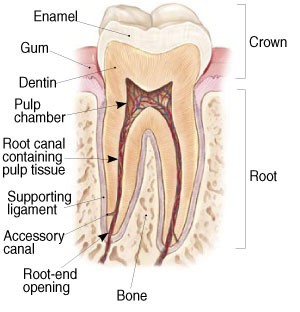
Why do I need a root canal?
Sometimes the pulp inside your tooth becomes inflamed or infected. This can be caused by deep decay, repeated dental procedures on the tooth, a crack or chip in the tooth, and trauma to the tooth.
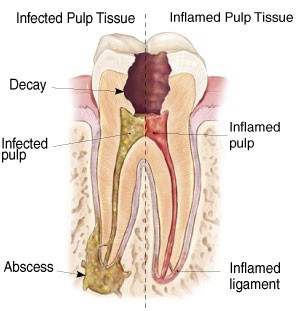
What are the symptoms?
Signs to look for include pain, prolonged sensitivity to heat or cold, discoloration of the tooth, and swelling and tenderness in the nearby gums. However, in some cases there may be no symptoms.
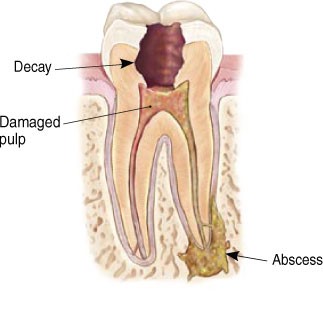
How does root canal treatment save the tooth?
After obtaining good anesthesia, the endodontist removes the inflamed or infected pulp tissue, carefully cleans and shapes the inside of the tooth, then fills and seals the pulp spaces with gutta percha (a root filling material). The number of visits you will need at our office will depend on your particular case. Some treatments take two visits but many require a single visit.
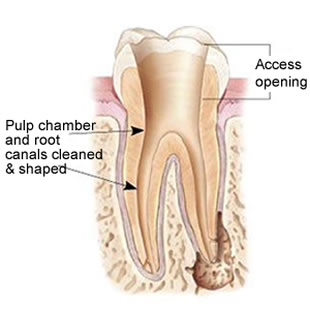
Will I feel pain during or after root canal treatment?
Many endodontic procedures are performed to relieve the pain of toothaches caused by pulp inflammation or infection. With modern techniques and anesthetics, most patients report that they are comfortable during the procedure. For the first few days after treatment, your tooth may feel sensitive, especially if there was pain or infection before the procedure. This discomfort can be relieved with over-the-counter or prescription medications. Follow your endodontist’s instructions carefully. Your tooth may continue to feel slightly different from your other teeth for some time after your endodontic treatment is completed. If you have severe pain or pressure or pain that lasts more than a few days, call our office.
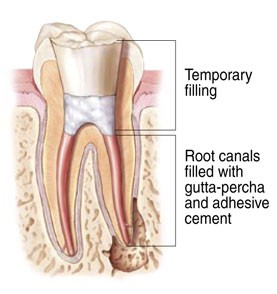
Will the tooth need any special care or additional treatment?
Upon completion of treatment, we will place a temporary filling your tooth. You will need to return to your family dentist to have the tooth restored (crown, filling). We ask that you wait no longer than six weeks to return to your family dentist for the permanent restoration of your tooth. You should not bite or chew on the treated tooth until it has been restored. Otherwise, just practice good oral hygiene brushing, flossing and regular checks-ups and cleanings. We will send you a post card in a year to follow up on the treated tooth. Endodontically treated teeth can last for many years, even a lifetime.

Will the tooth need any special care or additional treatment?
Upon completion of treatment, we will place a temporary filling your tooth. You will need to return to your family dentist to have the tooth restored (crown, filling). We ask that you wait no longer than six weeks to return to your family dentist for the permanent restoration of your tooth. You should not bite or chew on the treated tooth until it has been restored. Otherwise, just practice good oral hygiene brushing, flossing and regular checks-ups and cleanings. We will send you a post card in a year to follow up on the treated tooth. Endodontically treated teeth can last for many years, even a lifetime.
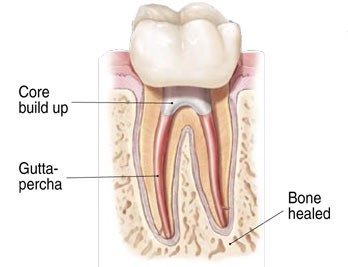
Tooth Restoration
After the final visit with your endodontist, you must return to your dentist to have a crown or other restoration placed on the tooth to protect and restore it to full function.